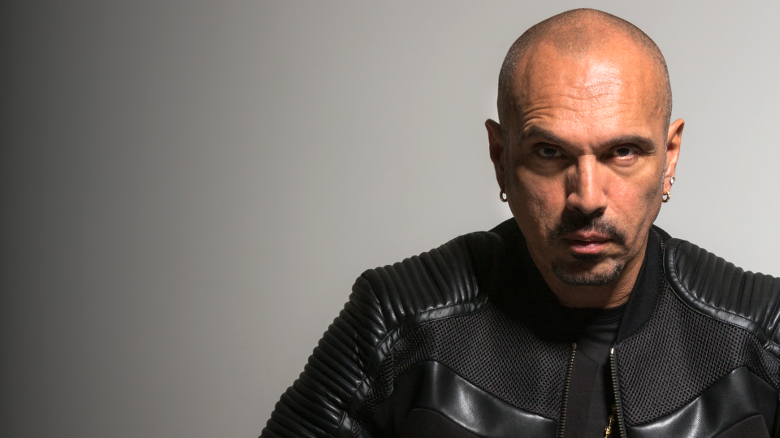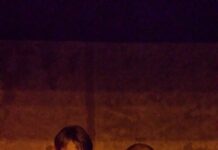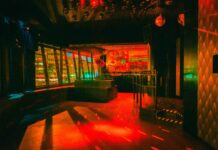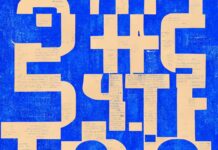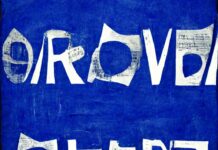How did you begin to promote your own events?
I played at a party for someone at a club in Brooklyn and the only people that showed up were my friends, so I approached the club and said “Can I do a party?”, and what started as once every couple of months became once a month and then became every Friday. I used to design my own flyers, after work I used to decorate the club. I used to do everything, I used to put up balloons, put out fruit, and it was an afterhours. And I worked with other promoters or hosts. The little bit of money I was asking for was a 100 or a 150 dollars. I was pulling teeth with people. I rented the club, I was running the whole logistics, the door and everything. So, as these parties went on, when I did a couple of parties with different hosts, what I realized was that everybody was coming for my music. It had nothing to do with the host. So that’s when I started to do my own parties.
How had the music changed you were playing then?
At that time the only thing I knew was commercial music, so the music I bought was the music you heard on the radio. I bought it at a record store. And I played once for somebody’s party, it was a surprise party for someone and there were some older people that used to go to a club called The Loft that was owned by David Mancuso. And I think I was about 18 years old. And somebody bought me like a stack of records of what they called Loft records and it was records they weren’t only playing at The Loft, they were playing them at the Paradise Garage, but I never went to any because they were both membership clubs. So when I first heard these different records, I was like “Whoa, what is this sound?” They were a lot of imports, none of those records you heard on the radio. So of course I wanted to know where to buy these records. I used to go to commercial record stores. There was Rock and Soul, there was Downtown records, and Vinyl Mania had these Garage and Loft classics. And some of them were very expensive, 25 to 50 dollars or more and at that time a 12″ was two or three dollars. So for me these old collector records and imports were really expensive.
So the clubs you were going to changed as well?
Every single wekend. I used to go to the Loft on Saturdays, before I did those parties. I was a dancer. I used to take LSD, god, and I was one of those party kids that would go to the Loft, go to the Paradise Garage and come home and play records – because I was inspired, and still fucked up. So I was doing these parties on a Friday and I would go to The Loft on Saturday. And David Mancuso gave me some books. I learned about sound and then then I got my first Urei and it was a big thing. And then in 1983 I joined Judy Weinstein’s record pool which was called “For The Record.” A record pool was a place where people paid a monthly fee, 50 dollars a month. It was a place where all the record companies would send their promos to. It could be a month before the official release date, two months, three months, it could be four months.
So it was essential if you wanted to have a DJ name in New York to be a member?
Well, to be a member at the record pool you had to be employed at a club. You couldn’t just join it. No, you had to prove that you played at a club.
And you were recommended?
A friend of mine, Kenny Carpenter, was a member of the record pool and he brought me there. Of course I was playing, but you had to get a corporate seal from the club, they had to be able to check that you were really playing at the club. And Larry Levan was a member of the pool, François Kevorkian, Jellybean, Tee Scott and all the big name DJs in the Tri-State area. It was 125 members. Also all the top remixers at that time, like Bruce Forest, Steve Thompson. And I used to give Judy Weinstein cassettes of my sets.
Were you already mixing at that time?
In 1980? No. I wasn’t even editing, I wasn’t doing anything yet. She recommended me to play at the Paradise Garage. I had never played in New York City. Never. I had been to the Garage, it was like the Mecca. Everybody knew Larry Levan. “He plays on four turntables”, all this kind of stuff. I used to go there, mesmerized, but I’d never been to the DJ booth. Fridays was straight, Saturday was gay and I went to the straight nights. I was with my friend Kenny Carpenter at my house, and he had played at Studio 54, he had played at Bonds International. He deserved to play at the Garage. There were many other DJs like Tony Humphries that deserved to play at the Paradise Garage before me. But Larry would have such a big personality, people were so scared of him because Larry Levan was Larry Levan. Even though he didn’t own the club but the Garage was Larry’s club.
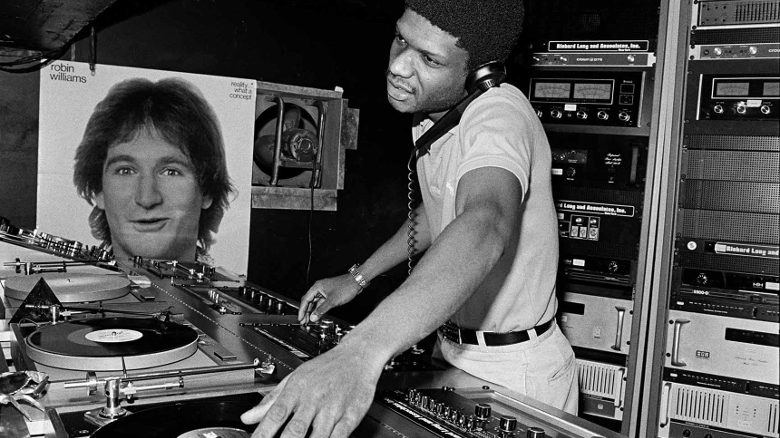
So he preferred DJs that had not that big a name?
They wanted somebody that wasn’t part of the politics. In a sense. So I’m in my house with my friend Kenny and I got a call from the owner and everybody knows the name of the owner and he says “Hello, my name is Michael Brody, I own a club called Paradise Garage” and I’m like “Yeah boy, who the fuck is fucking me.” He says “Our DJ has been playing like shit and I would like you to come play in my club.” And I fell to my knees. He never heard me play. I never played in New York City, I played in Brooklyn, at a place in my neighborhood, with about a hundred people.
That’s quite a leap forward.
The number one club in the world at that time was the Paradise Garage. A big sound system. Grace Jones? Mick Jagger? Everybody went to the Garage. I’d never been to the booth, I used to go there as a dancer! So, he offered me two nights and I knew the Garage was straight on Friday, gay on Saturday and he goes “I want to give you two nights, you can play two Fridays or I would like you to do Friday and Saturday.” And I said, “Listen, I don’t think I can handle the Saturday because I’ve never played for a gay crowd before.” He said “I just want you to come here and play music.” That was it. Okay, so I go to the guy in the booth and I was used to playing on 1200s. They have Thorens 125 Mark IIs, belt-driven. That’s a whole another science. The console, two reel-to-reels, it was like the Starship Enterprise. I was like “Can you put in Technics?” And they were like “No, you have to play on our turntables.” And I was like “Shit.” So they put my name on the marquee and they advertise my club, Ozone Layer. And people were like “Whose dick did you suck to play at this club, how did you get to play here out of everybody?” Because maybe only two to three other DJs besides Larry ever played there. And they were part of the cycle. It was just Larry Patterson and Tee Scott. François Kevorkian played there too, and he used to do the visuals and play drums there. So I play, Friday and Saturday, and they said I could bring whatever acts I wanted, whatever records I liked at the time, and one was Jocelyn Brown and I played Friday and Saturday back to back, 11 hours each night. And the turntables were amazing! And every DJ had their groupies. When you were resident at that time, you had all your groupies. And Larry was Larry. So if people hated me and they would thrown darts and knives and arrows behind my back, I didn’t even know, I didn’t even care because I didn’t know anybody. So that weekend put me on the map. My level went from here to there, from one weekend. After that I played ten times there. After that I got asked to play at this club called Inferno where they started with ten DJs, like a battle, every weekend, and they would finalize it to one guy. And of course, I ended up the one that they hired. And I remember I played first, and after I played that guy was supposed to play and said “No, you got it man, I can’t fuck with you man.” I started working for Judy at the record pool in 1984. I bought a reel-to-reel and I was editing my little mash-ups. And then I met a remixer, his name was Bruce Forest…
…who used to play at Better Days. Did he help you with your first steps in the studio?
Yeah. First he took me to the studio. I was intrigued, so I bought my first sampler and things. He was an incredible DJ and he inspired me. In 1985 I had a drum machine and a keyboard in my DJ booth. In 1985 he had a keyboard, a drum machine, he had two Korg samplers with a homemade trigger sampler using a keyboard pedal and even though I couldn’t play a fucking note I started to try and started editing for producers. Because in those days there were half-inches, there was no automation. So they would give me ten boxes of reels of different out-takes and from there I had to edit together a 12″ and a radio mix. So I had to listen to it. Each box had 15 minutes. So 10 times 15, you get a 150 minutes of music, that you had to make into a version. So the radio can’t be more than 4 minutes and a 12″ in those days maybe was 8 to 9 minutes. So I started with that and then I did my first remix, it was 1986. I’m a big fan of Imagination. And in 1987 from the UK Stock Aitken Waterman went big, because they had Rick Astley, who was big at that time. So, here I got this remix because I worked in the record pool, this remix of Imagination, it was called „Instinctual“ and it was mixed by them and it sounded like a Rick Astley record. So I told the promoter „This is not Imagination! This sounds like a Rick Astley record!“
They deserved better?
Yes! And I asked “Can I do a mix?”, and he said “Well, we have a budget of 5000 and I have to allocate it”, and I’m like “Please give me a chance.” It was an Arthur Baker production. I had Josh Milan from Blaze, who was 18 years old at the time, that did keyboards for me. So I did a record, it was out of key, and Arthur Baker and the group were like “But you really don’t understand anything.” “But it sounds great, you know.” And they were like “But it’s out of key!” Anyway, to make a long story short: It was a big record. Huge. Even Larry Levan said it was a great remix and I was like “Wow, oh my god, Larry Levan” So that was my first official remix. Then up there, I got asked by Jellybean to mix Whitney Houston’s “Love Will Save The Day”. Whitney Houston was brand new at that time. So, I did the mix and they said it was too black, too underground. So the day of the release I was heartbroken, because that mix was so important for my career and who was big at that time? Taylor Dayne, mixed by Ric Wake. So he mixed it, and he did this Taylor Dayne styled four to the floor House mix. I remember the promotional guy because I used to work at the record pool and knew the promotional guys, and he said „What do you think about the new Whitney House mix?“ That was no House music! I was playing House at Zanzibar with Tony Humphries. House music was new, it wasn’t even really there yet. So there was this promo guy, what do you know about House music? But in the end they released 250 limited promo copies, it was one of the most hard to get records, because you couldn’t get it at a store. Only if you were in a record pool and there were just limited copies. Years later DMC ended up releasing it. And then everything just started moving and in 1989 I took a trip to the UK.
